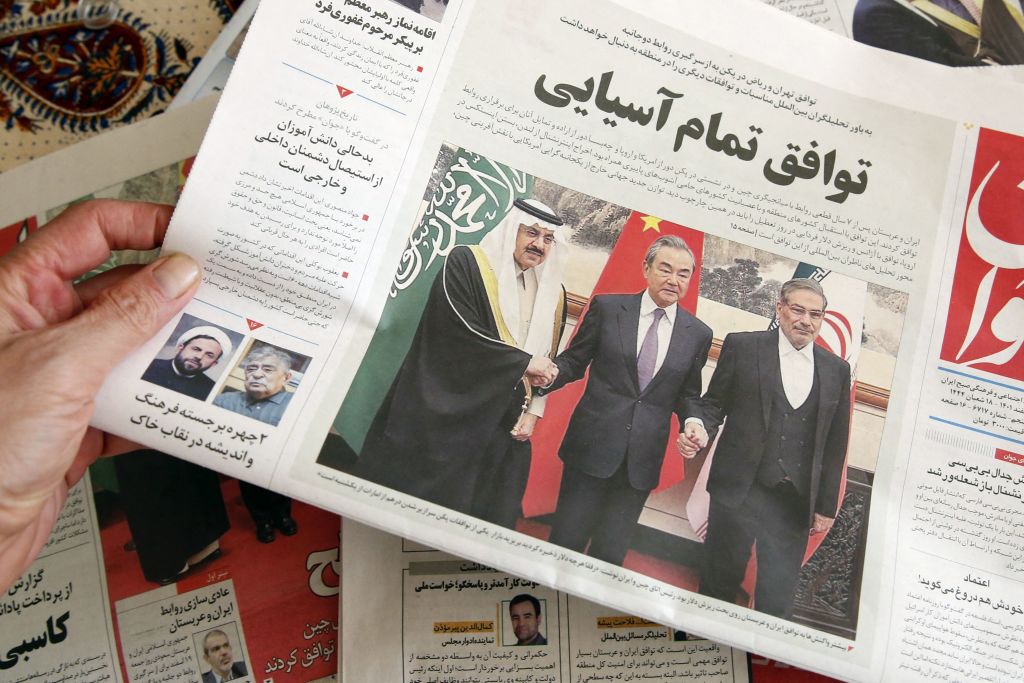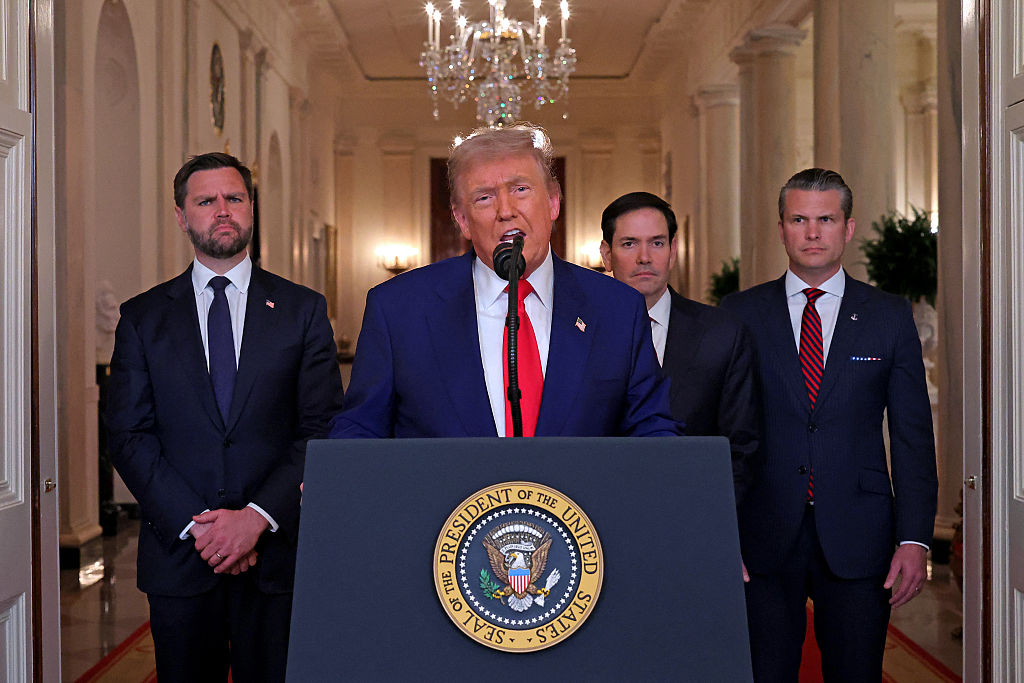China has been an epicenter of diplomacy over the last month and American officials can’t help but take notice of the shift. Statesmen flying to China, hat in hand, to sign business deals with Chinese firms or enlist Chinese diplomats to assist in solving international disputes gives the foreign policy graybeards ulcers. The general rule seems to be: what’s good for China is bad for the United States.
There’s no question that China’s Xi Jinping has had a good few weeks. After being occupied with a nationwide Covid-19 disaster that lasted for three years, Xi, a man whose entire legacy depends on China transforming into a superpower on par with or perhaps even surpassing the US, isn’t wasting any time before injecting his country back into the diplomatic arena. The Chinese never left the arena, of course, but the accelerated pace of meetings in Beijing has garnered the world’s attention and led observers to pontificate about whether the center of international statecraft is shifting east.
The most notable accomplishment for Chinese diplomacy was last month’s budding rapprochement between Saudi Arabia and Iran, two Middle East powers that have been on opposite sides of a number of regional disputes. The March agreement, which set Riyadh and Tehran on the path toward ending their seven-year-long diplomatic estrangement, has the potential to defuse some of the Middle East’s most grinding conflicts (the eight-year war in Yemen being the most urgent). The Saudi and Iranian foreign ministers followed up with a meeting in Beijing on April 6 to begin fleshing out the details of their accord. As far as we can tell, implementation is on track: Tehran even invited Saudi King Salman bin Abdulaziz for a state visit, which if accepted would be the first time a Saudi monarch has set foot on Iranian soil since the Islamic Republic’s establishment nearly 45 years ago.
Around the same time, French President Emmanuel Macron and European Commission President Ursula von der Leyen jetted to China for their own meetings. For von der Leyen, the visit was an opportunity to deliver some tough messages to the Chinese about the war in Ukraine. Macron, however, used the trip to enlist Beijing’s help in getting Ukraine and Russia onto a diplomatic track in pursuit of a political settlement. The fact that Macron’s bid failed and created a stupendous public relations disaster for him didn’t mean it wasn’t a success for China, which was able to point to the visit by one of the Continent’s most high-profile heads of state as an example of a fraying transatlantic consensus.
A week later, it was Brazilian President Luiz Inácio Lula da Silva’s turn to walk the red carpet with Xi. This visit was less noteworthy in the West but still effective from Beijing’s standpoint. Lula, who makes no apologies for having an independent streak, was not only chummy with the Chinese leader but echoed many of China’s long-term projects, including diversifying away from the US dollar and introducing more multipolarity into the international system. Lula even toured a Huawei development center in Shanghai, the very same telecommunications firm under a laundry list of US export controls.
The Chinese are only getting started. A country that spent decades following Deng Xiaoping’s mantra of “hide your strength, bide your time” is now exhibiting more confidence in the diplomatic limelight. Xi is firmly convinced that China has done enough waiting; he intends to make the most of the present. On April 16, Chinese Foreign Minister Qin Gang held separate calls with Israeli Foreign Minister Eli Cohen and Palestinian Foreign Minister Riyad al-Maliki and offered China’s services as a facilitator if both sides decided to sit down for peace talks. Whether the Israelis and Palestinians take up the offer is less important than the fact that China was bold enough to make it.
It’s tempting to see all this diplomacy and make broad conclusions about China’s power. The immediate urge is to assume that the US is losing its luster, unable to keep pace with Beijing or ceding the field to its chief rival.
Yet this would be a gross oversimplification of what is going on. Yes, China is demonstrating initiative. But we haven’t the slightest clue if this initiative will pay off in the end. Even if it does, China’s diplomatic competency can be overstated.
The Saudi-Iran rapprochement is instructive. On the surface it sounds like a big deal, and it could very well be. But the diplomatic process is only in its infancy, and it could end abruptly for any number of reasons or turn out to be less groundbreaking than Beijing makes it out to be. China’s ability to move both sides to an agreement is significant, but let’s not forget that other countries, namely Iraq and Oman, did much of the legwork before China was even in the picture.
If the Saudi-Iran deal does stick, so much the better. It’s hard to see how de-escalation in the Middle East is a negative. The State Department’s top Middle East official, Barbara Leaf, said as much in an interview with the National: if Iran implements what it agreed to, “it would be a breakthrough, a very significant breakthrough.” She’s right: more stability in the region means less risk for the tens of thousands of American troops based in the region at any given time and one more reason (if you need one) for why a US military downsizing won’t be the cataclysmic earthquake so many claim it will be.
Instead of panicking, we should view Chinese-led diplomacy for what it really is: a great power unsurprisingly acting like one.

























